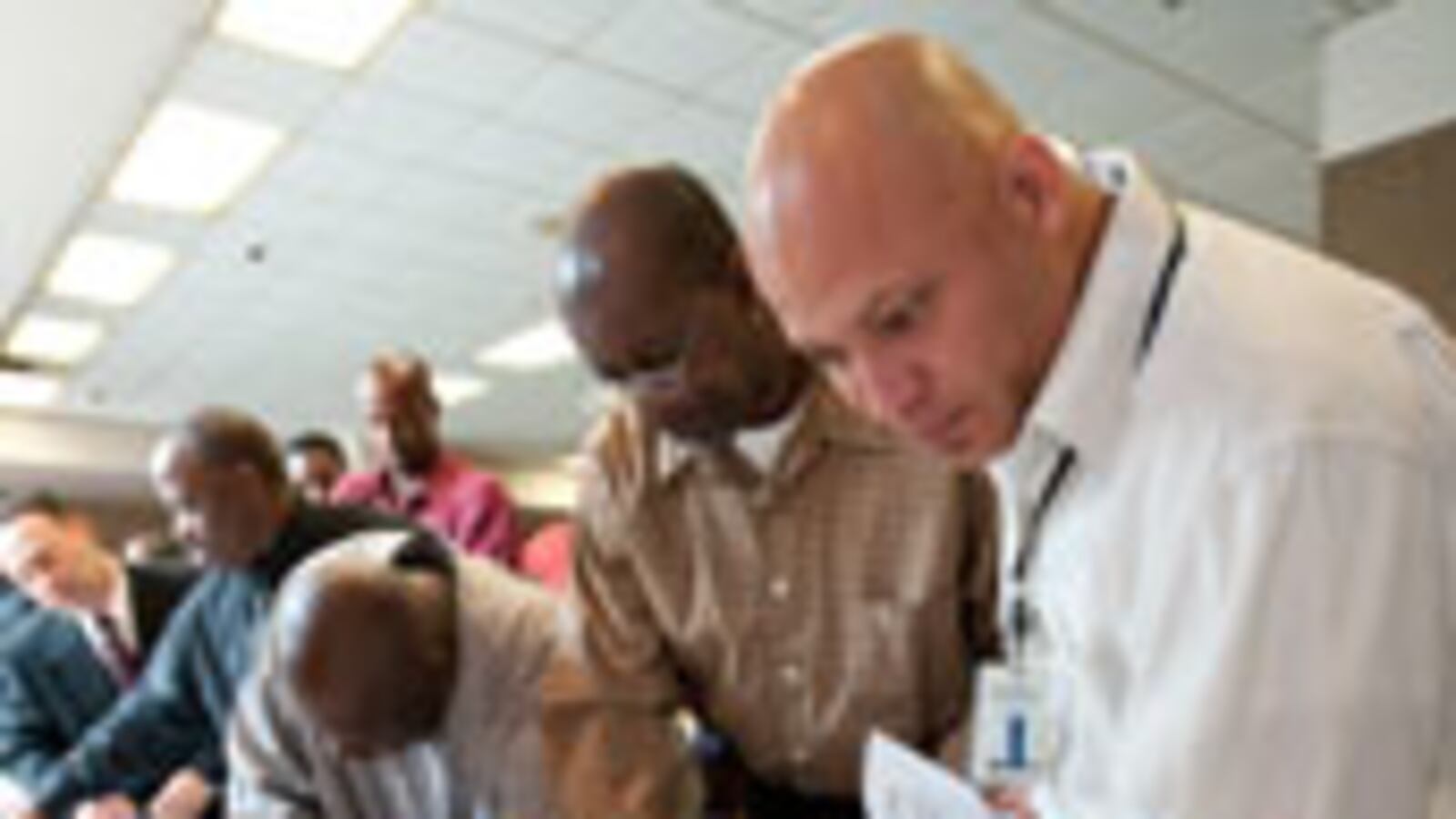
With financial reform nearly completed, Sen. Sherrod Brown (D-OH) has spent the last several weeks begging leaders to turn to jobs next, but even an extension of federal aid to the unemployed, once an uncontroversial issue, has become a difficult battle. Republicans are filibustering an extension of jobless benefits, leaving millions of Americans without a crucial source of income as help expires. Opponents of the extension say it will add too much to the deficit and some have suggested that the unemployed are less likely to look for work without a clear cutoff point to federal aid.
“I think that their vote on unemployment really tells you so much about one, how they’re willing to play politics with anything, and second, how out of touch with the country they are,” Brown said. He rejected suggestions that unemployment benefits be offset with cuts in spending elsewhere, arguing that deficit spending in a recession was accepted economics everywhere except for “The Wall Street Journal op-ed page.”
“It gives us, I think, room to push really hard on… a series of jobs bills and make them vote against them and make them do it repeatedly.”
Some lawmakers, including Sen. Ben Nelson (D-NE), are calling on Congress to offset any extension of benefits with cuts elsewhere. Brown said such a move would cancel out the aid's boost to the economy.
“Unemployment by definition is countercyclical, so when the economy is bad you don’t cut government spending,” he said.
In addition to the unemployment extension, Brown has backed legislation to distribute billions of dollars in grants to states to help prevent layoffs of state workers. But lawmakers appear wary of the increase in federal spending. White House senior adviser David Axelrod acknowledged in an interview Sunday on ABC’s This Week that “there's not a great desire” in Congress for more stimulus.
A number of prominent economists, including The New York Times’ Paul Krugman, warn that without further government spending the world could face a third depression. Weak job growth and a growing trade deficit have some concerned that at the very least, the U.S. could backslide into a dreaded " double-dip" recession.
Brown told The Daily Beast he does not believe the nation will fall into a second recession without a second round of stimulus.
“No, I don’t,” Brown said at a briefing for reporters in the Senate when asked by the Beast about the prospect of a double-dip recession/economic reversal without additional jobs bills.
Senator Sheldon Whitehouse (D-RI), who joined Brown at the briefing, implied Republicans stood to gain politically from blocking successful job-creation efforts, saying that it “doesn’t do their electoral prospects any harm for there to be more economic misery in America before the election, let’s put it that way.”
Democrats have also sought to capitalize on Republican obstruction in recent days, as White House Press Secretary Robert Gibbs pounced on recent comments by Sen. Jon Kyl (R-AZ) that deficit spending should be used to fund tax cuts for the wealthy, but not to extend jobless benefits. Whitehouse said Republican intransigence could end up backfiring on them.
"It gives us, I think, room to push really hard on, I hope, a series of jobs bills and make them vote against them and make them do it repeatedly,” he said.
Benjamin Sarlin is Washington correspondent for The Daily Beast. He previously covered New York City politics for The New York Sun and has worked for talkingpointsmemo.com.






